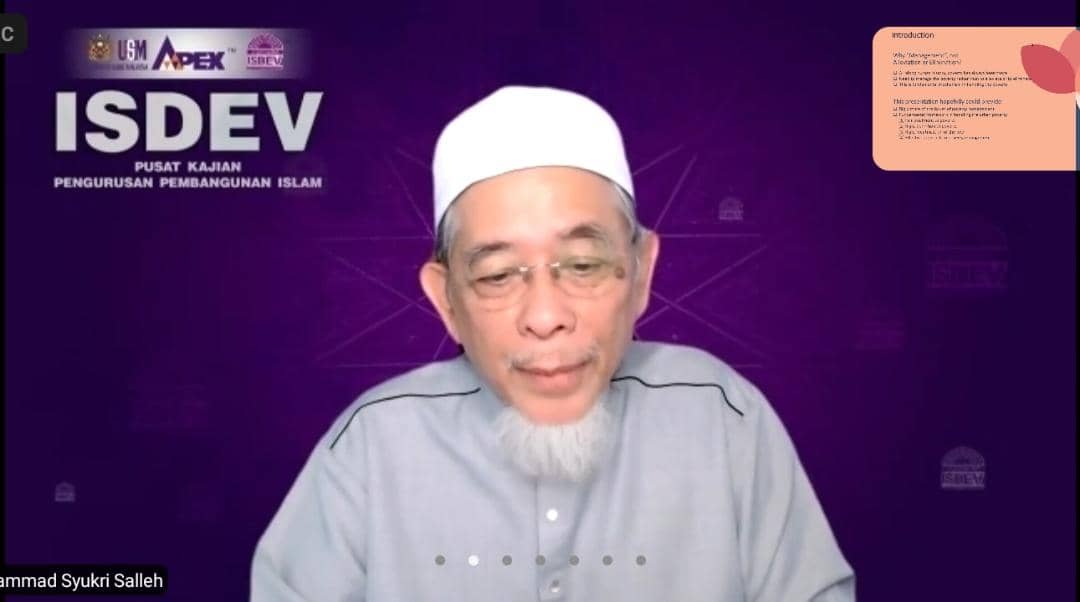By Nurin Najmina Zaidi
GOMBAK, 18 October 2022: In the history of mankind, poverty has existed for a long time. In order to solve the problem of poverty one must focus its management from an Islamic perspective rather than just its elimination.
The view was shared by Prof. Dr. Mohd. Syukri Salleh from the Centre for Islamic Development Studies (ISDEV) of Universiti Sains Malaysia (USM) in a webinar called “Urban poverty: Realities and perspectives on Islamic Management of Poverty.”
“Eliminating poverty is impossible because if you look at human history, there is not a single period where there are no poor people. Which is why it must be managed instead,” he pointed out.
In the Islamic management of poverty, Dr. Syukri noted that there are four issues that must be addressed.
Perception of poverty
Poverty is commonly viewed negatively as it is associated with helplessness, social imbalance, and poorer nations are at a disadvantage compared to wealthier nations.
Dr. Syukri mentioned that in the history of Islam, there are different kinds of perceptions of the poor.
Such as in Abu Hurairah’s hadith, the poor will enter paradise before the rich whereas in the story of Ansar, they were encouraged to work to sustain their life instead.
“We need to know how people end up poor or rich and also whether being poor is related to one’s spirituality and not just the state of poverty,” he said.
These questions led him to believe that there was a selective perception of poverty that is in need of another thorough research study.
Whose definition of poverty
Dr. Syukri stated that most people define poverty by relying on the western ethnocentric definition which measures a poor person by income and other related indicators.
From the Islamic perspective, however, the definition of poverty would be different since it includes spirituality resulting in different kinds of categories such as mazmummah and mahmuddah.
Identification of the poor
In identifying the poor, Dr. Syukri believed that it needs to be based on how they perceive themselves rather than relying on our own perspective towards the poor.
“Try to detach ourselves a little bit and understand the thinking of the poor on how they perceive themselves and their point of view,” he urged.
Approaches to the management of poverty
Poverty can be managed by using two approaches which are the top-down initiated by the authorities and the bottom-up initiated by the people via participation.
Although both approaches have their own pros and cons, Dr. Syukri believed that it is better to have the right blend of top-down and bottom-up approaches in order to manage poverty more effectively.
This webinar was part of the Sociology and Anthropology (SOCA) Interactive Day and was in a hybrid format held at ADM LT 5 and Zoom on 14 October 2022 at 9.15 am.***
